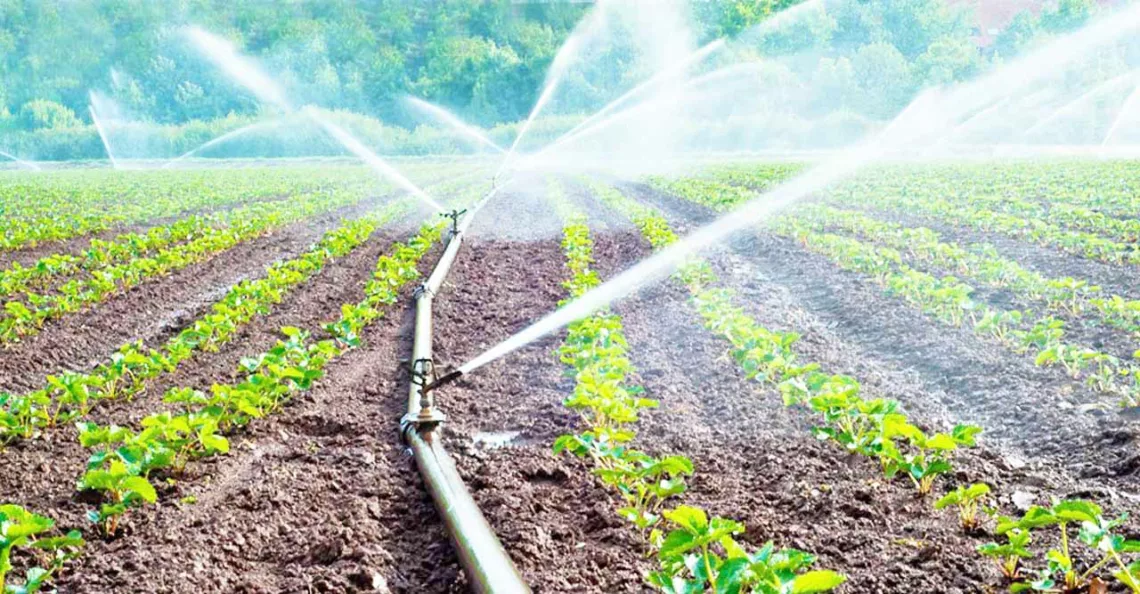Water remains one of the most critical resource that accelerate sustainable agricultural development.
As climate change continue to be a major challenge affecting progresses made in improving food production, availability of more water is considered very paramount to meet the increasing demand for crop and animal production even for domestic and industrial use.
There is no doubt that limited supply of both rain-fed agriculture and irrigation systems for agricultural production place barriers to achieving sustainable development goals agenda of zero hunger by 2030.
The Food and Agriculture Organisation of the United Nations (FAO) acknowledged that the world isn’t heading for a water crisis but It’s already in one.
The world agriculture apex body said an additional 35 per cent in water resources will be needed by 2050 to meet growing demand for food, fibre and feed as agriculture currently accounts for 72 per cent of freshwater withdrawals.
As discourse around water crisis continue to take front burner in efforts towards food and nutrition security, FAO maintains optimism that agriculture can lead the way out of it.
According FAO deputy director-general, Maria Helena Semedo, climate change is causing droughts and floods all over the globe as water bodies that support vital biodiversity and production of food, both aquatic and on land, are compromised by reduced irregular flows and pollution.
Speaking to mark this year’s World Water Day, Semedo said agriculture, the most dependent on freshwater, must be central to the emerging Water Action Agenda to protect one of humanity’s most critical resources.
She said, “The numbers are already stark. Over 700 million people face high and critical water stress and over 90 per cent of natural disasters are water- related. The situation is worsening. Global water availability and quality are deteriorating. Climate change is intensifying. Competition between sectors and countries is increasing. By 2050, two-thirds of the world’s population could face water shortages.
Agriculture currently accounts for 72 per cent of freshwater withdrawals. On current trends, an additional 35 per cent in water resources will be needed by 2050 to meet growing demand for food, fibre and feed. At the same time, demand for other uses is increasing. These numbers clearly don’t add up”.
“This is hugely worrying for efforts to end hunger and poverty, because there can be no food and agriculture, and the livelihoods it supports, without clean and sufficient water – for irrigation of crops, for livestock, and for the many species that live in aquatic ecosystems. Agriculture – including forestry, fisheries and aquaculture – also plays a crucial role in the management of surface water, ground water recharge and even circulation of atmospheric water, thanks to forests.
“If we are to protect the future of food, and meet the Sustainable Development Goals, the needs and role of agriculture must be supported. Agriculture itself needs to get more efficient at using water, better at keeping pollutants out of water bodies, and more resilient to climate change. So, how do we do this? The key is to act now with integrated water resource management approaches to produce more food, fibre, feed and biofuel with less water, more sustainably,” she added.
She noted that countries need strong political will to collaborate between sectors that use water and properly plan to reverse land and water system degradation and reduce competition for resources when combined with innovative technical, institutional, governance and financial support.
“Targeted investments and innovations in solutions for treated wastewater reuse, coping with drought and water scarcity, and circular bioeconomy approaches can help tackle water-related challenges. The sustainable use of biodiversity adapted to climate and soil conditions is key,” she said.
In Nigeria, speaking recently at an inception workshop to familiarise famers with the operations of the pilot project of drip irrigation technology in Abuja, minister of water resources, Engr Suleiman Adamu said addressing most of the challenges facing water and irrigation system in Nigeria necessitated a critical shift from improper water management practice to a more sustainable land and water management approaches,
According to Engr Adamu, this can be achieved through the initialisation and promotion of technologies that includes the optimisation of agricultural water management which will support the intensification of crop production and the preservation of land and other natural resources.
He said, “Farmers need to be trained towards reducing dependency on rain-fed agriculture through sustainable and efficient use of water resources particularly for irrigation.”





